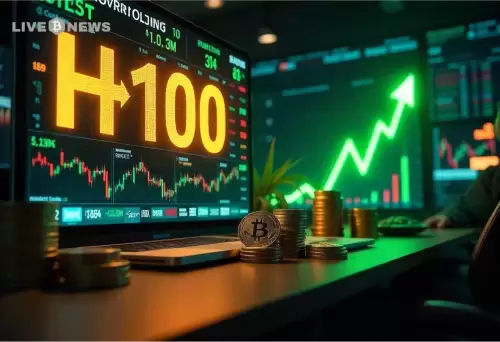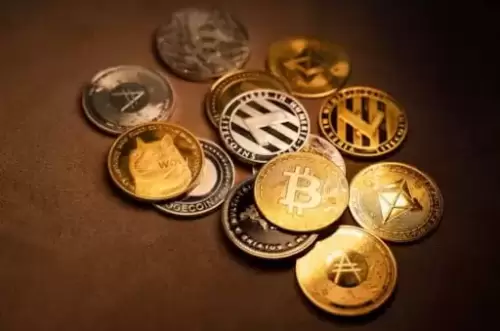 |
|
 |
|
 |
|
 |
|
 |
|
 |
|
 |
|
 |
|
 |
|
 |
|
 |
|
 |
|
 |
|
 |
|
 |
|

Bitcoin (BTC -0.06%) is the world’s largest cryptocurrency, with a market capitalization of $1.8 trillion, which represents more than half of the total value of all coins and tokens in circulation across the entire industry. It's in high demand from a growing number of investors, who view it as a legitimate store of value, which could pave the way for significant upside over the long term.
XRP (XRP -2.91%), on the other hand, was created by a company called Ripple to standardize transactions within its global payments network. Therefore, unlike most cryptocurrencies, it has an actual purpose in the real world, which could drive its value higher over time.
Bitcoin and XRP delivered staggering returns of 119% and 235% last year, respectively, but with 2025 now in full swing, which one might be the better buy?
The case for XRP: A changing of the guard at the SEC
The Ripple Payments network is designed to help global banks settle transactions with one another directly, which eliminates the need for intermediaries, so money flows across borders instantly.
Ripple created XRP to give banks an opportunity to standardize those transactions -- it costs just 0.00001 XRP (a fraction of $0.01) to send a cross-border transfer, so it's much cheaper than sending fiat currencies, which can attract large foreign-exchange fees.
XRP has a total supply of 100 billion tokens, out of which 58.4 billion are in circulation, whereas Ripple controls the other 41.6 billion and releases them gradually to meet demand. Since the company is effectively an issuer, the U.S. Securities and Exchange Commission (SEC) sued it in 2020, arguing XRP should be classified as a financial security, like a stock or a bond.
If the SEC prevailed in court, Ripple would have been forced to change its business model or operate under a very strict regulatory framework. But in August 2024, a judge ruled that XRP might only be a security in some circumstances, like when it's issued to banks, but not when it's used in transfers or traded on crypto exchanges.
Ripple was fined $125 million as part of the verdict, but investors viewed the outcome as a win. The SEC appealed the decision, but the agency's new leadership under the Trump administration has paused the case with the intention of reaching a settlement.
Things could get even better for Ripple because the SEC's new chairman, Paul Atkins, was sworn in last Monday, April 21.
Prior to accepting the top job, Atkins served as the co-chairman of a crypto advocacy organization called the Token Alliance, and he was an advisory board member at Securitize, a company that helps tokenize real assets on the blockchain to make them more investable. Put briefly, he is likely to support innovative crypto companies like Ripple rather than stand in their way.
The case for Bitcoin: A reliable store of value
Bitcoin doesn't have a true use, like XRP, but it has avoided regulatory scrutiny because of its unique set of qualities. It has a fixed supply of 21 million coins that will be fully mined sometime around the year 2140, and it's fully decentralized so it can't be controlled by any single company, person, or government. As a result, it isn't a financial security by definition.
In fact, the SEC has approved dozens of Bitcoin exchange-traded funds (ETFs), which give financial advisors and institutional investors an opportunity to own the cryptocurrency with the safety of regulatory oversight. Many of those investors couldn't own Bitcoin prior to the availability of ETFs because holding coins in digital crypto wallets is risky (they can be susceptible to hacks).
Bitcoin ETFs have attracted around $110 billion in inflows so far, which highlights how much pent-up demand was waiting in the wings. Given that the cryptocurrency has consistently climbed to new highs since it was created in 2009, a growing cohort of investors are describing it as a digital version of gold -- in other words, they believe it to be a legitimate store of value. ETFs allow more investors to capitalize on that idea.
Cathie Wood from ARK Investment Management thinks institutional investors could eventually park 5% of their assets in Bitcoin ETFs, which could lead to a price-per-coin of $3.8 million by 2030. That implies a staggering 3,942% gain from where it trades as of this writing.
However, it would give the crypto a market capitalization of $79.8 trillion, which is more than three times higher than the total value of all above-ground gold reserves (which stands at $22.1 trillion as of this writing). As a result, that price target might be a little ambitious
免責事項:info@kdj.com
提供される情報は取引に関するアドバイスではありません。 kdj.com は、この記事で提供される情報に基づいて行われた投資に対して一切の責任を負いません。暗号通貨は変動性が高いため、十分な調査を行った上で慎重に投資することを強くお勧めします。
このウェブサイトで使用されているコンテンツが著作権を侵害していると思われる場合は、直ちに当社 (info@kdj.com) までご連絡ください。速やかに削除させていただきます。




























































